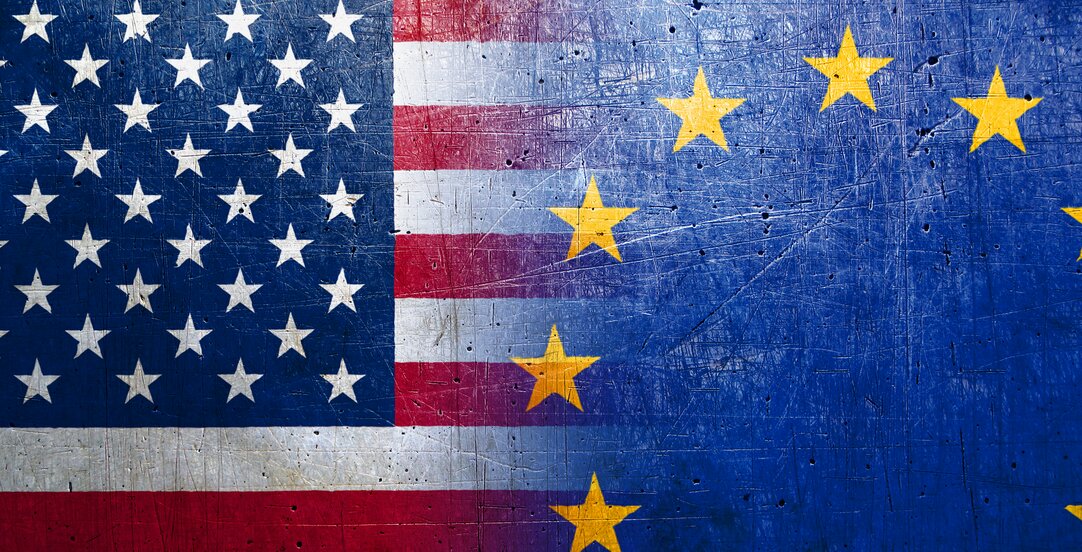Potential increase in US and EU sanctions against Russia

As Russia continues its military build-up along the Ukrainian border, both the US and the EU warn of new sanctions that will be used against Russia if it takes aggressive steps. Reportedly, the US and EU are preparing a coordinated response to deter Russian military initiatives towards Ukraine, which they have stated would have "massive consequences" for Russia.
Reading time 4 minutes
The US and the EU are among the parties that have maintained sanctions against Russia since its invasion and subsequent destabilisation of Ukraine in 2014. Now, both the US and EU have stated that Russian military action against Ukraine will prompt additional sanctions with a "severe cost" for the Russian economy.
At this stage, US and EU officials have only given preliminary indications of the scope and design of sanctions. We describe these below, together with some steps that we would advise companies with Russia-related business to take while awaiting further clarification.
Potential US sanctions
The US has announced that it has developed a package of sanctions that will include new measures not previously imposed by the US against Russia. US Secretary of State Anthony J. Blinken recently stated that the extensive set of sanctions would have "financial components", "economic components" and "export control components".
In respect of potential financial sanctions, senior US administration officials have stated that these would "restrict foreign capital", although they have not explained exactly how they would do this.
US lawmakers are also reportedly considering cutting Russian financial institutions off from SWIFT, the messaging platform that allows financial institutions to securely send and receive information globally. The US also appears to be weighing an increase in the targeted sanctions currently imposed on Russian oligarchs and Russia's energy, finance and defence sectors, for example by adding targeted individuals to the SDN list.
In respect of the imposition of export controls, these would appear to be focused on technology designed and produced within the US or, in certain events, outside the US if subject to US export control jurisdiction. Senior US administration officials stated earlier this week that the US is prepared to impose "novel" export controls related to "sophisticated technologies" that are essential to Russia's strategic high-tech ambitions. The aim would be to impair key sectors that are important for Russia's ability to diversify its economy beyond oil and gas, essentially by restricting Russia's access to sophisticated technology that would be difficult to replace through domestic production or alternate supplies.
Potential EU sanctions
On 24 January 2022, the Council of the EU condemned Russia's continued aggressive actions and threats against Ukraine and called on Russia to de-escalate (press release here). Like the US, the Council stated that any further military aggression by Russia against Ukraine will have "massive consequences and severe costs".
According to the Council, the EU has accelerated its work in preparing sanctions, explaining that the response will include "a wide array of sectoral and individual restrictive measures", although it has not yet provided details on specific action.
In any event, new EU sanctions would likely seek to increase the cost of any Russian military aggression, for example by further restricting transactions with Russian-owned or -controlled entities involved in heavy industry, energy and financial sectors, and/or individuals linked to President Putin. In its recommendations for a renewed Russia-related strategy by the EU in September 2021, the European Parliament generally recommended that the EU, in the event of further escalation of human rights violations and hostile acts perpetrated by Russia, consider to (a) impose sanctions that "target the financing of intelligence services and the military, and the oil and gas sector" of Russia, to (b) prepare a sanctions mechanism where continuation of hostile acts would "trigger an EU-level reduction of energy imports from Russian-based suppliers", and to (c) increase its ability to prepare and adopt sanctions against Russian authorities, Russian oligarchs and President Putin’s acolytes.
Preliminary recommendations for companies with Russia related business
While US and European businesses that are involved in or with Russia or Russian parties await further clarification on the timing and scope of potential sanctions, there are three steps that they can take in order to prepare for any further escalation in sanctions:
- Identify which parts of their business are active in Russia or have Russian suppliers or customers;
- Review the sanctions clauses in major contracts to see how and when these would be triggered by an escalation in sanctions; and
- Remind their sales and procurement teams to seek legal advice before entering into new contracts with Russian exposure.
________________________________________
WR Sanctions Alerts provide you with updates on material developments in the country-specific sanctions programmes implemented by the US, the UN, the UK, the EU and Norway. We will not provide updates on mere prolongations, without material changes, of existing sanctions programmes, nor on any listings or de-listings of individuals/entities placed on implemented sanctions lists . Please note that the WR Sanctions Alerts are provided as general information and do not constitute legal advice.
